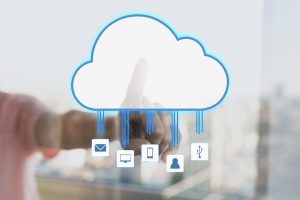In the rapidly evolving world of technology, IT professionals constantly demand to stay updated with the latest tools, methodologies, and industry standards. This need for continuous learning has led to a shift in how training and development programs are delivered. While Learning Management Systems (LMS) have long been the cornerstone of educational technology, a more dynamic and personalized approach is now emerging: Learning Experience Platforms (LXPs). LXPs are transforming modern IT training by delivering tailored learning experiences, making learning more engaging and accessible. This blog explores the benefits of LXPs and why they are steadily replacing traditional LMS platforms.
What Are Learning Experience Platforms?
A Learning Experience Platform (LXP) is a modern, user-centric digital environment that provides personalized learning experiences. Unlike traditional Learning Management Systems (LMS), which are focused on administration, course management, and content delivery, LXPs emphasize engagement, interactivity, and user-driven learning paths.
LXPs use artificial intelligence (AI), machine learning (ML), and data analytics to recommend content that aligns with individual learner needs, preferences, and career goals. This approach makes learning experiences richer and more relevant, giving users the autonomy to explore content at their own pace.
Why Are LXPs Replacing Traditional LMS in IT Training?
- Personalization and Flexibility: Traditional LMS platforms follow a one-size-fits-all model where content is structured linearly. Learners often need more say in the sequence or type of content they engage with. In contrast, LXPs prioritize the individual’s learning preferences. Through AI-driven algorithms, LXPs can curate personalized learning paths based on users’ past behavior, skill gaps, and future career goals.
In IT training, where the skill sets required can vary significantly between learners, this level of personalization is crucial. For example, a software developer might need to focus on DevOps skills, while a cybersecurity specialist may want to explore advanced threat detection techniques. LXPs empower learners to select what’s most relevant, making learning more flexible and adaptive to their unique career needs. - Diverse Content Formats: IT professionals often require hands-on learning experiences. LXPs offer various content formats, from videos and interactive simulations to podcasts, blogs, and user-generated content. This diversity allows learners to choose the format best suits their learning style.
For example, while a detailed video tutorial might work for one learner, another might prefer a more interactive, simulation-based approach. LXPs facilitate these choices, giving learners access to content that covers theoretical knowledge and emphasizes practical, real-world application — a crucial component in IT training. - Engagement and Gamification: One of the primary reasons LXPs are gaining traction over traditional LMS platforms is their focus on engagement. LXPs incorporate gamification, badges, leaderboards, and interactive quizzes to make learning more enjoyable and competitive. This not only boosts learner motivation but also promotes active participation and retention.
Gamification can be particularly effective in the context of IT training. IT professionals often enjoy challenges, and gamified elements can transform mundane learning tasks into rewarding experiences. Whether solving coding problems or cybersecurity simulations, gamification drives learners to engage more deeply with the content. - Social and Collaborative Learning: Traditional LMS platforms often isolate learners, offering limited opportunities for peer interaction. LXPs, on the other hand, emphasize collaborative learning. Features such as discussion forums, peer reviews, and social sharing enable learners to engage with their colleagues, share knowledge, and learn from one another.
This social learning aspect is invaluable in modern IT training, where collaboration is key to problem-solving and innovation. LXPs provide a space where IT professionals can discuss challenges, share resources, and co-create content, fostering a culture of continuous learning and knowledge sharing. - AI-Powered Insights and Analytics: One of the standout features of LXPs is the integration of AI and advanced analytics. LXPs analyze vast amounts of data to generate insights into each learner’s progress, engagement levels, and skill acquisition. This allows organizations and learners to track performance in real-time and make adjustments as necessary.
This level of insight is particularly beneficial in IT training. Organizations can tailor their training programs to focus on the most relevant skills by understanding where learners excel or struggle. This increases the efficiency of learning and ensures that IT professionals are equipped with the latest and most in-demand skills.
The Key Benefits of LXPs in IT Training

Customized Learning Paths
LXPs offer personalized recommendations tailored to each learner’s needs and goals. For IT professionals, this means no more wasting time on irrelevant courses or modules. LXPs use AI to assess an individual’s skill level and recommend specific content to help them advance in their careers. Whether learners seek certifications in cloud computing, cybersecurity, or software development, LXPs ensure they follow a path that leads to tangible outcomes.
Upskilling and Reskilling Opportunities
With the rapid technological advancements, IT professionals need to upskill or reskill continuously to stay relevant. LXPs facilitate this by providing access to various learning materials, from beginner to advanced levels. For instance, a professional who needs to reskill from a traditional IT role to a more cloud-centric position can easily find curated content that guides them through the process.
Furthermore, LXPs enable professionals to keep pace with emerging technologies like AI, machine learning, blockchain, and more, ensuring their continued competitiveness in the fast-paced IT industry.
On-Demand Learning
LXPs allow learners to access content anytime and anywhere, allowing them to learn at their own pace. This is particularly important in the IT industry, where professionals often juggle multiple projects and tight deadlines. On-demand learning ensures that training is accessible when most convenient, leading to better engagement and knowledge retention.
Integration with Modern Technologies
Many LXPs seamlessly integrate with other digital tools and platforms that IT professionals use daily, such as GitHub, Slack, and cloud-based environments. This allows for a more cohesive learning experience, where learners can practice skills with the same tools they use at work.
For example, an LXP integrated with a cloud platform could allow learners to practice setting up virtual machines or deploying applications in real time. This kind of hands-on, integrated learning is invaluable in IT training.
Scalability and Cost-Effectiveness
LXPs are highly scalable, making them an excellent solution for organizations of all sizes. Unlike traditional LMS platforms that may require significant investment in content creation and management, LXPs often leverage user-generated content and external resources, reducing the cost of training programs.
Moreover, the ability to offer personalized learning at scale means organizations can provide training to thousands of employees without compromising on quality. This is especially beneficial in large IT firms, where training needs vary significantly across departments.
Conclusion
Learning Experience Platforms (LXPs) are revolutionizing how IT professionals approach training and development. By offering personalized, engaging, and flexible learning experiences, LXPs cater to the unique needs of IT learners, helping them stay competitive in an ever-evolving industry. As more organizations recognize the limitations of traditional LMS platforms, the shift toward LXPs is inevitable. With features like AI-driven recommendations, gamification, social learning, and real-time analytics, LXPs are not just a trend—they represent the future of modern IT training.
By embracing LXPs, IT professionals and organizations can ensure they are equipped with the right skills at the right time to navigate the complex technological landscape of today and tomorrow.





